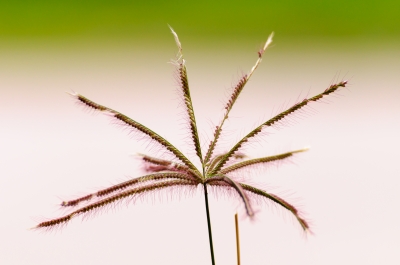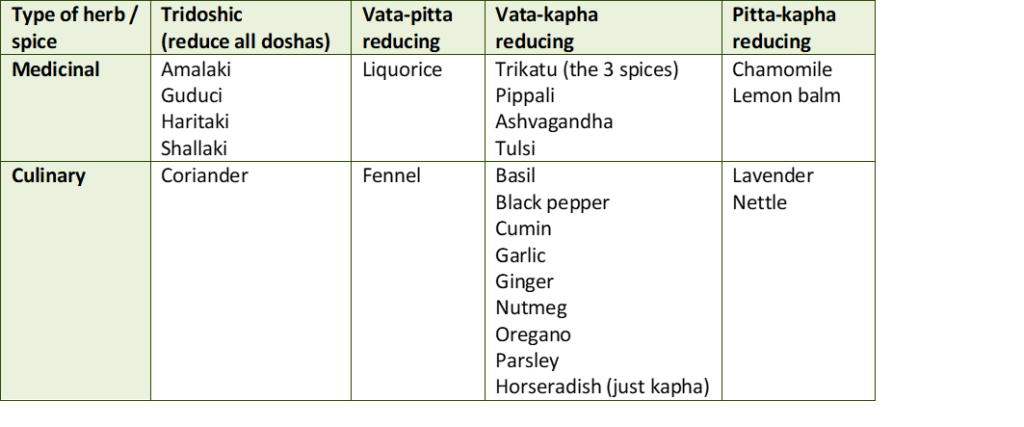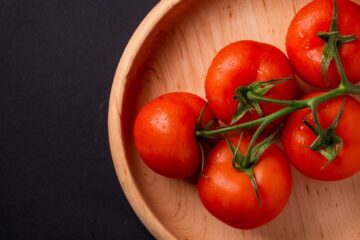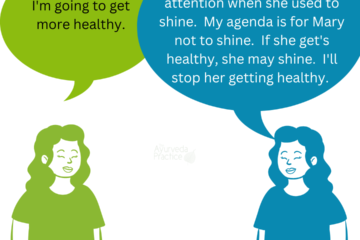
The hay fever season is almost with us much to the chagrin of those who suffer with it. There is a lot that can be done to prevent and help with hay fever in Ayurveda, do read on!
There are different variations of hay fever
Any dosha can be responsible for hay fever. If one (or more) of your doshas are out of balance, hay fever may show up in one of (or a mixture of) the following ways.
Vata (=air and space) is out of balance
- Dry nose, less mucous but it’s sticky and obstructing, leaving you stuffy
- Dry mouth, lips and throat
- Shooting pain headaches
- Hoarseness of voice
Pitta (=fire and water) is out of balance
- Burning sensations (irritated eyes, sore burning throat, high irritation in the nose)
- High thirst
- Mucous may be warm and yellow
- Potential fever or sense of being hot
- Possible skin symptoms such as hives
Kapha (=earth and water) is out of balance
- Excessive mucous which may be more white and cold, a streaming nose
- Swollen eyes, puffy face
- Heaviness in the head and face
- Itching in the scalp, throat, lips and mouth
Prevention is better than a cure
If you suffer from hay fever, start paying extra attention to your diet and lifestyle a few months before your symptoms would normally start. Keep yourself in balance, nurture your digestive fire to avoid ama and make sure you have a good store of ojas (the essence of all the tissues providing immunity and resilience).
The suggestions below apply in the run-up to and during your hay fever season.
Food
Try a cleanse between winter and spring as the junction of seasons is the best time for this. A mung bean soup and green vegetable cleanse would be ideal.
Eating seasonally is important as the type of foods harvested during any season contain the antidotes to the extreme characteristics of the season.
In spring, we see vegetables with more bitter, pungent and astringent tastes and less of the sweet root vegetables which helped us through winter. This means there is an influx of green, so it’s time to up those lighter seasonal green vegetables and have a bit less of the heavier starchy and protein-rich foods which we needed during the winter.

Eat warm foods and drinks with plenty of herbs and spices. Raw unheated honey is great too for dealing with extra mucous (local is even better!).
It is best to avoid cheese, yoghurt, bananas and cold foods and drinks if you are suffering from mucous as these encourage its formation.
Drinks
Enjoy lots of warm drinks. A great tea for hay fever is ginger. You can also choose teas which are best for you using the herbs section below. If adding a little raw unheated honey, wait until the tea has cooled a little as you shouldn’t heat honey.
Herbs for hay fever
I do love herbs! There are just so many benefits to them, whether you’re taking them medicinally or using in your cooking.

If you’re struggling to find out which doshas cause your hay fever or want to take some of the medicinal herbs, do get in touch for a consultation or do an online health check.
Barriers – stop the allergens getting in
Along with making sure your body isn’t being overreactive to allergens, it’s also a good idea to put up some physical barriers to stop them getting to you in the first place.
- Put a drop or two of oil into your nose daily. You can try sesame oil, ghee, olive oil or even better, medicated nasya oil infused with specific medicinal herbs.
- You can try steam inhalations (holding your head over a bowl of boiled water) or a neti pot (nasal saline wash). With both it is important to put a drop or two of oil in the nose afterwards otherwise you’ll end up with cleansed but dry nostrils. Dry nasal membranes will then be more irritable, so you’ll be back where you started. If using a neti pot, make sure you empty the water out of your nose of water thoroughly.
- You can also provide a barrier for the mouth by swishing sesame oil in the mouth. Gargling with turmeric and salt in warm water can also be helpful.
Treatments
An in-clinic nasya treatment is a more intense version of the home nasal cleansing which would be especially helpful if the hay fever was leading to a lot of blockage or sinus problems.
Head and face massages are great for relieving stuffiness and headaches, for which shirodhara is also amazing.
If vata or pitta are high in general, go for an oil massage and with high kapha, try the powder massage.
Keep that hay fever at bay and enjoy the warmer weather ahead.
Until next time, take care of yourselves,
Kate
Author: Kate Siraj, Ayurvedic Practitioner, BSc Ayurveda, MChem (Oxon), MAPA, Shadow Work Coach
© The Ayurveda Practice
Photograph of grass pollen thanks to Freedigitalphotos.net



2 Comments
SJ · February 21, 2021 at 12:14
Interesting article! I will consider trying some of your tips soon (I have grass pollen allergy in May/June). I do wonder, during which periods are citrus fruits in season?
Kate · February 22, 2021 at 09:27
It depends where you live really. In the UK, they aren’t ever in season! In Ayurveda, highly sour foods like citrus are not very recommended although small quantities of lemon and lime added to food are fine.